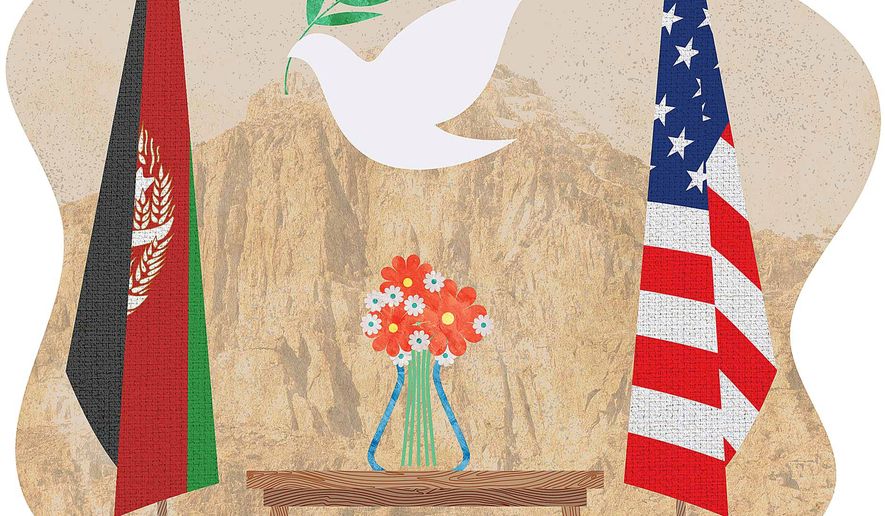OPINION:
TOLOnews recently printed the details of a leaked RAND Corp. document that appears to be the basis of efforts that the U.S. special envoy for reconciliation in Afghanistan, Zalmay Khalilzad, is using to negotiate an end the Afghanistan War.
Some national security observers have reacted with dismay that the administration might by outsourcing foreign policy formulation away from the State Department. If that is the case, no one should be surprised. President Trump has made it clear that he intends to get America out of Afghanistan, and neither State nor the Pentagon has thus far given him viable options for doing so. Like him or hate him, Mr. Trump has made it obvious that he intends to keep his promises. The government shutdown should have convinced any doubters, but State and Defense have proven to be slow learners.
According to TOLO, the RAND proposal contains several things that the Americans, the Afghan government and the Taliban have demanded as part of a peace agreement. It calls for the eventual withdrawal of U.S. and NATO forces in return for an agreement by the Taliban to renounce foreign terrorism, and that all sides would agree to an international “small, limited Afghanistan Support Team” to replace current American efforts to keep out al Qaeda and ISIS. The proposal also calls for a new Afghan constitution that would allow for more local control of police — and presumably the judiciary — while still allowing the central government to control the national security forces. This is similar to a proposal that this writer has made in these pages. The agreement would be implemented under the aegis of a cease fire observed by all sides within 18 months of being signed. This falls within the time frame that the president needs to keep his promise by the next election.
The Americans and NATO want assurances that international terrorists won’t return. The parties that represent the current Afghan government want control of the national security forces, and the Taliban wants more local governance in the primarily Pashtun majority areas that they control. Local oversight of the police may not go far enough for them, but it is a starting point for further negotiations.
Complete implementation of the RAND plan might well result in a truce and could lead to an uneasy agreement between the central government and the Taliban, but it will not solve Afghanistan’s key problems. First, the Ring Road that would connect the major population areas of the nation remains incomplete between its major western city (Herat) and Mazar al Sharif, which is the largest northern urban area. Afghanistan will never be a truly unified nation without such a line of communications. Second, there are many Talibans. The central leadership may still be the students of conservative Islam that their name implies, but one major faction (the Haqqani Network) is a for-profit criminal organization as are many tribal groups that call themselves Taliban to give legitimacy to their drug activities. These groups will eventually fight for regional control. Neither of these is an American or NATO problem.
The current situation is a stalemate. The urban central government can’t break the Taliban, and the Taliban will not be able to overrun the cities. The urban populations don’t want radical Islamic rule and the conservative rural areas where the Pashtu dominate do don’t want central rule. If the RAND solution doesn’t work, there are only two other options if the Trump campaign promise to end the war is to be kept.
The first option is to continue a drawdown until there are no troops in country by the beginning of the election campaign in 2020 and hope that our 18 years of effort have made the Kabul government viable. The primary advantage is that the president keeps his promise. The danger is a Kabul government collapse forcing Mr. Trump to run as the president who lost Afghanistan. That is very unlikely, but not totally improbable. No option is without risks.
The second approach is to use the Erik Prince option of replacing U.S. military trainers and counter-terror forces with contractors. This would show the Afghans that the Americans are still supportive, while allowing the president to keep his promise. Mr. Trump has toyed with this option previously, but the Pentagon talked him out of it.
If the RAND plan leads to some kind of agreement, the Departments of State and Defense will hopefully have learned as valuable lesson. If you don’t do your job, someone will fill the vacuum.
• Gary Anderson is a retired Marine Corps colonel who has served as a civilian adviser in Afghanistan.




Please read our comment policy before commenting.